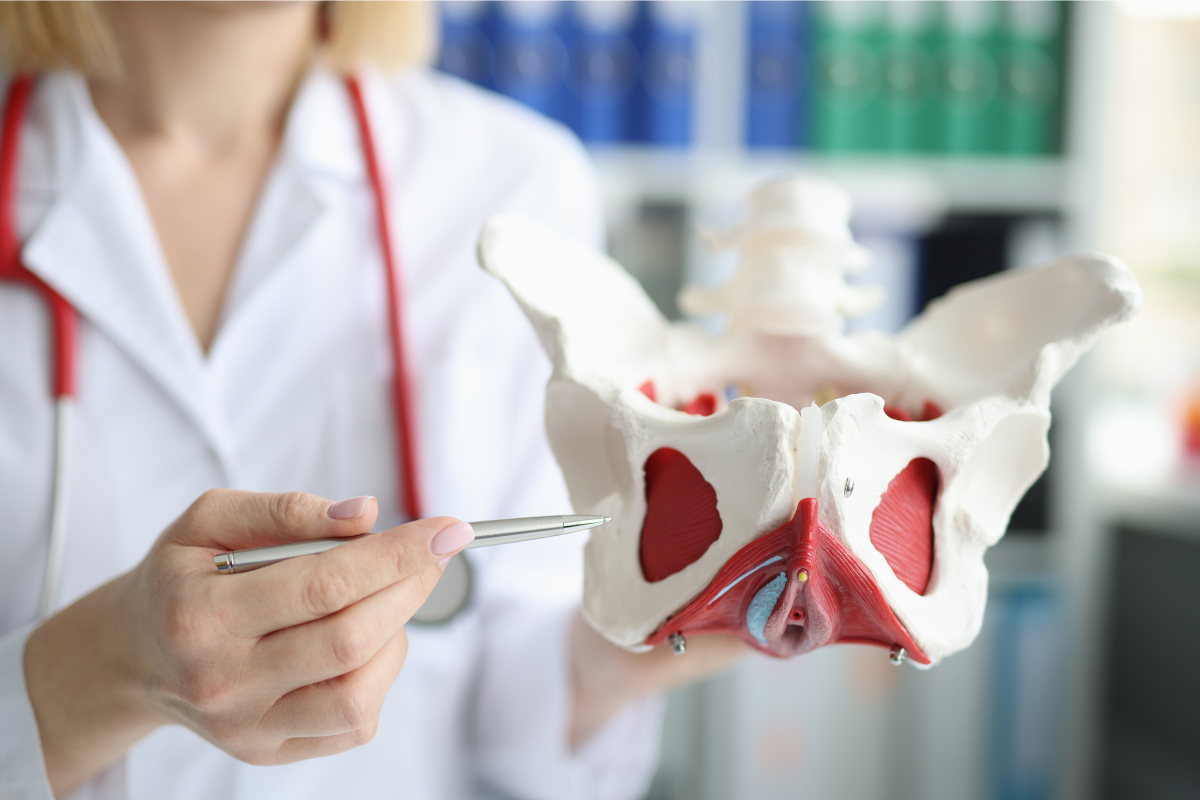Lichen Sclerosus & Vaginal Pain After Menopause

You might assume that an itching sensation in your vulva is a yeast infection, or perhaps due to the vaginal dryness and skin changes that come with decreased estrogen around menopause.
However, you should be aware of the signs and symptoms of a skin condition called lichen sclerosus (LS), which becomes more common after menopause.
LS affects at least 1 in 50 postmenopausal women, but the true number may be much higher due to a lack of awareness among both women and their providers. Identifying and treating it as quickly as possible will give you the best chance at comfortable, long term management.
LS is a chronic, progressive, inflammatory skin condition that almost exclusively occurs on the genitals. While it does not have a single cause, it’s believed to be an autoimmune condition in which the body mistakenly attacks its own healthy cells. LS is not directly caused by menopause, but low estrogen levels significantly increase the risk that it will develop.
Diagnosis of LS
Signs and symptoms of LS include:
- Itching
- White, shiny patches of skin around the vulva and/or anus
- Tearing of the skin around the vulva and/or anus
- Easy bruising
- Pain with vaginal penetration
While LS is sometimes diagnosed from just a visual exam, your healthcare provider may also do a skin biopsy to confirm.
LS or Genitourinary Syndrome of Menopause?
Almost all postmenopausal people experience changes in the vulva and vagina related to lowered estrogen levels, referred to as genitourinary syndrome of menopause (GSM). You can read more detail about GSM in this article.
Both conditions can cause itching, discomfort, and pain in the genital area. However, there are some key differences to note:
Color. LS often presents as white, shiny patches on the vulva. The early stages of GSM usually appear red and irritated.
Location. LS can affect areas beyond the vagina, such as around the anus. GSM is concentrated around the opening of the vagina.
If you’re experiencing any discomfort in your genital area during menopause, it’s crucial to consult a healthcare professional. A gynecologist, dermatologist or genitoruinary dermatology specialist can accurately diagnose whether you have LS, GSM, or another condition.
While LS is a well-documented condition, your provider’s education and experience may not equip them with the expertise that you need. If you don’t feel like you’re getting the guidance that you need, don’t be afraid to get multiple opinions. While waiting lists for specialists can be long, connecting with a true expert in this area can be a huge benefit.
Managing LS
LS is a chronic condition that must be managed for the rest of your life. Without treatment, it will progress to cause scarring and a loss of elasticity in the vaginal tissues, including the vaginal opening.
The progression of LS often leads to painful sex, both from narrowing of the vaginal opening and fissuring (paper cut-like injury) of the tissues around the vagina.
Medication
Treatment of LS usually centers around a topical steroid cream like clobetasol, applied directly to the affected areas.
However, postmenopausal people with LS are also still going to experience the effects of GSM. The estrogen-based therapy commonly prescribed for GSM may be an important additional component of a long-term treatment plan and worth discussing with your healthcare provider.
Laser
While not FDA-approved for this purpose, some people with LS, GSM or both use laser treatments like the Mona Lisa. This is not considered a first-line treatment, and you should discuss it with your provider.
Diet
Because LS is an inflammatory condition, some hypothesize that dietary modifications can help manage its symptoms and slow its progression. Suggestions include avoiding foods rich in oxalates or eliminating added sugars and alcohol to reduce inflammation.
There is no clear evidence supporting these dietary changes, but many with LS report that they’ve had individual success.
Moving Forward with LS
LS can be a life-altering diagnosis for many people, affecting physical intimacy and relationships. Getting an accurate diagnosis and appropriate treatment as soon as possible is the first step in taking back control and finding a new normal.
Treating the tissue changes is one key component of living with LS, but you may need additional resources to find a comfortable path back to physical intimacy and intercourse.
Dilator therapy is a key part of long-term management for many people. You can follow a self-directed plan or get additional support from a pelvic floor physical therapy specialist.
Finding a new rhythm with your sexuality and sexual partnership is a challenge for many midlife women but can be especially important for people managing LS.
Many Midday users also benefit from talking to our menopause coach, where they can get confidential, non-judgmental support for their sexual wellness questions and challenges.
Here’s what a Midday user has to say:
“My partner is very patient with me about my lack of desire for sex but I really don’t want to speak with him about it. My coach is the one I think is best to discuss this with as you take time with me and I feel I can be open and honest with you”
Sign up for more unique women’s health content
By submitting this form, you agree to the Lisa Health Privacy Policy and Terms of Use


